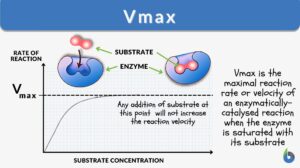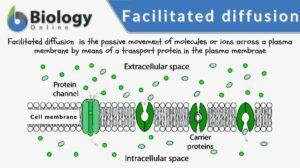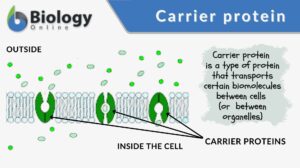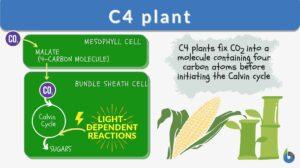Search Results for: affinity
Affinity chromatography
Affinity chromatography (Science: investigation) a technique of analytical chemistry used to separate and purify a... Read More
Protein Activity and Cellular Metabolism
Protein Binding Sites The ability of various molecules and ions to bind to specific sites on the protein surface forms the... Read More
Hydrophilic
Hydrophilic Definition What does a hydrophile (or hydrophilic molecule) mean? If a molecule is “water-loving”, it is... Read More
Association constant
Definition noun A mathematical constant that describes the bonding affinity between two molecules at... Read More
Movement of Molecules Across Cell Membranes
Diffusion Diffusion is essentially the movement of molecules from a region of higher concentration to a region of lower... Read More
Hydrophobic
Hydrophobic Definition The fear of mixing or reacting with water under a given set of reaction parameters is often referred... Read More
Nucleosome
Nucleosome Definition Every organism is made of deoxyribonucleic acid, also known as DNA. DNA is made up of numerous... Read More
Lipotropin
Definition noun, plural: lipotropins A polypeptide hormone of the anterior pituitary gland, presumably acts by promoting fat... Read More
Glycolysis
What is Glycolysis and Why is it Important? Glycolysis is a metabolic pathway by which the 6-carbon molecule of glucose is... Read More
Facilitated diffusion
Facilitated diffusion is the transport of substances across a biological membrane from an area of higher concentration to an... Read More
Thermophile
Thermophiles Definition What are thermophiles? Let us first understand the literal meaning of the word ‘thermophile’.... Read More
Respiration
Organization of the Respiratory System Each lung is composed of air sacs called alveoli - the sites of gas exchange with... Read More
Monod-Wyman-Changeux model
Definition noun (biochemistry) A model used to describe the allosteric forms of cooperativity Supplement The... Read More
Erythrocyte
Erythrocyte Definition Erythrocytes (red blood cells or RBCs) are the myeloid series of specialized cells that play an... Read More
Homeostatic Mechanisms and Cellular Communication
Homeostasis is the relatively stable conditions of the internal environment that result from compensatory regulatory... Read More
SENI Biometric Analysis on the extinct Scincidae species: Macroscincus coctei (underlined)
Brian L. Schnirel Leeway Corucia Research Center (LCRC) Courtesy: Polyphemos (2004) Introduction: It has been... Read More
Hydrocarbon
Definition noun, plural: hydrocarbons An organic molecule comprised exclusively of carbon and hydrogen atoms Supplement A... Read More
Hydrophile
Definition noun, plural: hydrophiles (chemistry) A molecule or compound that is hydrophilic or having an affinity for... Read More
Hydrophylic
Having an affinity to... Read More
Monoclonal antibody
monoclonal antibody (Science: immunology molecular biology) A substance, usually a protein, which can be synthsised in the... Read More
Down-regulation
Down-regulation (Science: physiology) development of a refractory or tolerant state consequent upon repeated administration... Read More
Chromaffin cell
Definition noun, plural: chromaffin cells Any of the cells (mostly found) in adrenal medulla and in other ganglia of the... Read More
Carrier protein
Carrier protein is a type of cell membrane protein involved in facilitated diffusion and active transport of substances out... Read More
Reticular fiber
Definition noun, plural: reticular fibers A type of connective tissue fiber that is made up of type III collagen secreted by... Read More
Microtubule-associated protein
Definition noun, plural: microtubule-associated proteins Any of the proteins bound to the tubulin subunits of the... Read More
Hydrocarbon chain
Definition noun, plural: hydrocarbon chains A chain consisting of only carbon and hydrogen atoms Supplement A hydrocarbon... Read More
Bacteriophage
Definition noun, plural: bacteriophages A virus capable of infecting a bacterial cell, and may cause lysis to its host... Read More

















